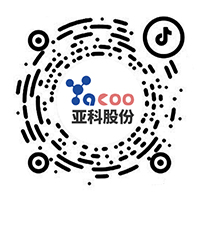Search Product
Structure Search
Search
Advantage Products
Location: Industrial Info
New progress in research on high energy density zinc-iodine single-liquid flow battery (Energy and Environmental Science)
Recently, the research team led by Li Xianfeng and Zhang Huamin of Dalian Institute of Energy Storage Technology (DNL17) of the Chinese Academy of Sciences, has made new progress in the research of high energy density and long life zinc iodine single flow battery. The research results were published in the Energy and Environmental Science.
Advantages of Zinc iodine flow battery
As a new type of electrochemical energy storage technology, zinc iodine flow battery adopts high specific capacity and high activity zinc ion as negative electrode active material, which has the advantages of high energy density and high safety. In addition, the zinc iodine liquid stream also uses a high specific capacity, high working voltage iodine electric pair to do the positive active electric pair, further improving the overall energy density of the battery, and showing broad application prospects. Zinc iodine flow batteries have received more and more attention due to their high energy density (I-concentration up to 8M) and environmental friendliness.
Disadvantages of zinc iodine flow battery
However, zinc iodine flow batteries also have problems such as low battery power density, short cycle life, and relatively low utilization rate of active materials. In the early stage, the research team greatly improved the cycle life and power density of zinc-iodine flow batteries by optimizing the electrolyte composition and membrane materials (Angew. Chem. Int. Ed., 2018).
Concept of Zinc iodine single flow battery
In this work, the team innovatively proposed the concept of a zinc-iodine single-fluid battery. Different from the traditional zinc iodine flow battery, the zinc iodine single flow battery has a flow circulation system only on the negative side, and the positive electrolyte solution is fixed in the positive electrode cavity. The positive ion concentration of the positive electrode of the battery can completely satisfy the capacity requirement of the negative zinc deposition. Since there is no blockage problem between the electrolyte line and the pump, I- can be charged to the solid state I2, and the utilization rate of the electrolyte is close to 100%, which greatly increases the energy density of the battery. At the same time, researchers use porous carbon felt as the electrode, and the three-dimensional conductive network of carbon felt improves the power density of the single-flow battery.
The experimental results show that the single-flow battery can stably operate more than 500 cycles at 80 mA/cm2 without significant attenuation. The above research work provides a good reference for the development of a new system of high energy density flow battery.
Edited by Suzhou Yacoo Science Co., Ltd.












